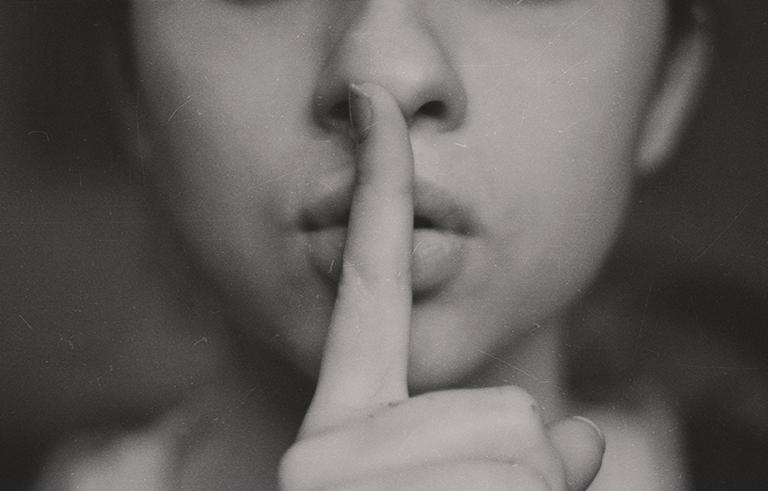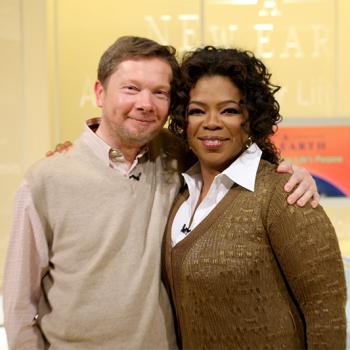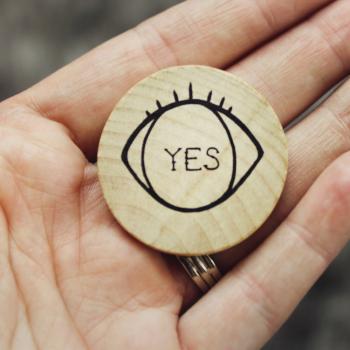Have you ever become aware of a voice talking in the back of your head—you know, the one that critiques and analyzes your every move—and it…just…won’t…shut…up? You’re not alone, this voice is a constant companion for many of us.
Eckhart Tolle identifies this narrator in our heads as “the egoic self.” The ego is a voice you might falsely identify as yourself, “a mind-made me” in the words of Tolle, as opposed to other voice that lives within you—the deep and steady awareness at your core that is the real you.
What’s the problem with the ego? Plenty. It overanalyzes. It overreacts. It complains a lot. It likes to be in conflict with something or someone. It always wants to be right so it can feel superior. And when you acknowledge the ego by going along with what it has to say, you only make it stronger.
In Stillness Speaks, Eckhart Tolle tells us that due to the unsteady nature of the ego, it’s hard to feel real peace or contentment when we place the egoic voice in charge. Your moments of happiness are fleeting, because the ego is always moving on to the next thing, never satisfied, always looks for new conquests and conflicts.
Michael A. Singer believes the ego keeps us from living our best possible lives.
Several months ago, I wrote a detailed story about dealing with the voice of the ego that you may have missed because of its too-clever title. I believe the lessons from that story are so important they bear repeating.
In The Untethered Soul, Singer took a look at “the self” and the barriers the ego puts up that prevent us from fully living our lives. I reordered the content of Singer’s book into 9 key points. While much of the language below belongs to Singer, I have interspersed his thoughts with some of my own.
Point 1. There’s a voice inside your head that never stops talking.
It never shuts up. It talks nonstop, like an annoying roommate. It even talks to you in the shower. It analyzes. It criticizes. Its constant chatter puts a buffer between you and life, instead of allowing you to live life to its fullest.
You’re not the only one who hears this chattering voice. It’s an issue that plagues almost everyone. Katherine Graham, the successful former publisher of the Washington Post, once wrote that she was always wondering: “Did I said the wrong thing? Did I wear the right clothes? Am I attractive?” The voice second guesses your every move.
But for all the attention you pay to it, most of what the voice says is meaningless. It doesn’t improve your life or make you a better person. All the chattering is a waste of time and energy and an anchor around your life.
That’s a burden you should not be bearing. You shouldn’t have to constantly mull over what you just said or just did or what this or that person thinks about you. You shouldn’t have to experience constant insecurity, anxiety and self-consciousness. You should be able to live your life without the voice questioning your every move. But how?
Point 2. Realize you are not the voice inside your head/the ego.
When you notice the voice, you realize that who you are is not the voice—the thinker—but the one who is aware of it. Know yourself as the awareness behind the voice. ~Eckhart Tolle
This idea requires a little bit of introspection, so read it slowly. There are two distinct aspects of each person, including you, and you need to separate them.
- The first you is the shallow you, the ego, the person you put out into the world. This is the domain of the egoic voice and the source of the incessant, often critical chatter in your head. It is located in the mind.
- The second you is the deeper you, the awareness, the witness, the center of your intentions. Some might call this the soul or the true Self. It is located at the core of your being and is located close to the heart.
The second you sits back and watches the first you. Think about that right now. There’s a you that’s deep inside that notices the voice in your head talking. It is separate and not the voice itself.
There is nothing more important to your personal growth than realizing that you are not the voice. The real you is the one who hears the voice. The listener. The one who observes. When you come to this realization, you take away much of the power of the egoic voice.
Point 3. Stop for a moment and locate the real you, the awareness at your core.
The mind itself is not awareness. It is only a machine. We are the awareness. ~Yogani
It’s so easy to get caught up in the world of thoughts, emotions, and physical sensations that you don’t even know you’re in there. Your consciousness just follows whatever catches its attention like a cat chasing a flickering light. That’s the normal state for most people.
The key is to be quiet. It’s not your mind that has to be quiet. It’s you, the one inside watching the neurotic mind, that has to be quiet. You are the awareness.
There are ways to get to this quiet place and find the awareness. For many, this happens through meditation, breathing exercises, yoga or a vigorous workout, when you’re able to quiet the shallow you and silence the voice. When the voice is silenced, what remains is the real you, the watcher, the true Self.
Point 4. To tap into the real you, you need to be centered and aware.
You are the sky. Everything else is just the weather. ~Pema Chodron
You want to live with a separation between you and your thoughts. Your thoughts may happen, you’re aware of them, but you’re not affected by them. They’re out there, like clouds floating by a window, and you’re sitting back observing them.
When you live your life aware, you’re no longer completely immersed in the events around you. Instead, you inwardly know that you are the one who is experiencing both the events and the corresponding thoughts and emotions.
Instead of getting lost in a thought, you remain aware that you are the one who is thinking the thought. The world ceases to be a problem. It’s just something you’re watching. You can pull back from the angst, the worry, the second-guessing, and see everything.














